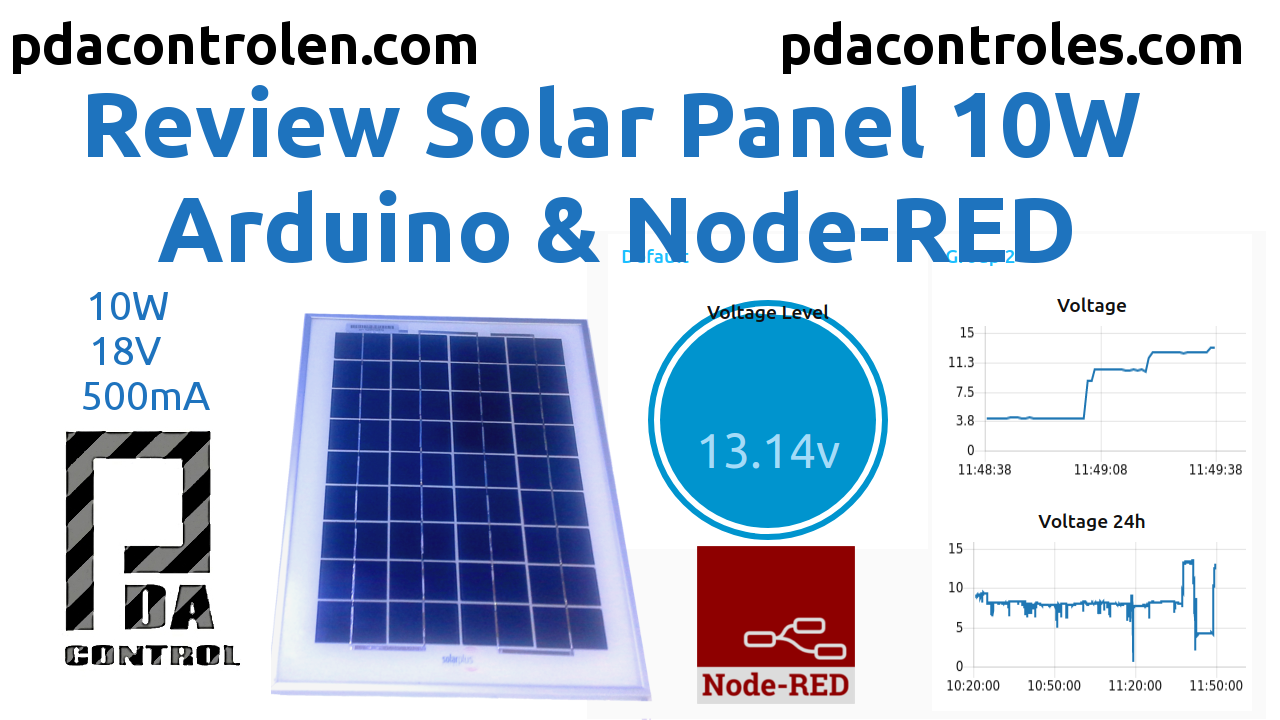For a long time I had planned to make some application with photovoltaic panel or common solar panel, in this opportunity I have acquired a monocrystalline solar panel of 10w perfect to power the devices we use in our tutorials.
Although this is in design, we will perform a meterological station – Gateway later, and this panel a set of batteries and a constant load circuit will feed our module ESP8266 or ESP32.
We will make a quick review …
Since there is a lot of documentation in the network about solar panels, I will not emphasize on the subject, we will do a quick test.
Solar Panel: Source wikipedia
Photovoltaics: Source wikipedia
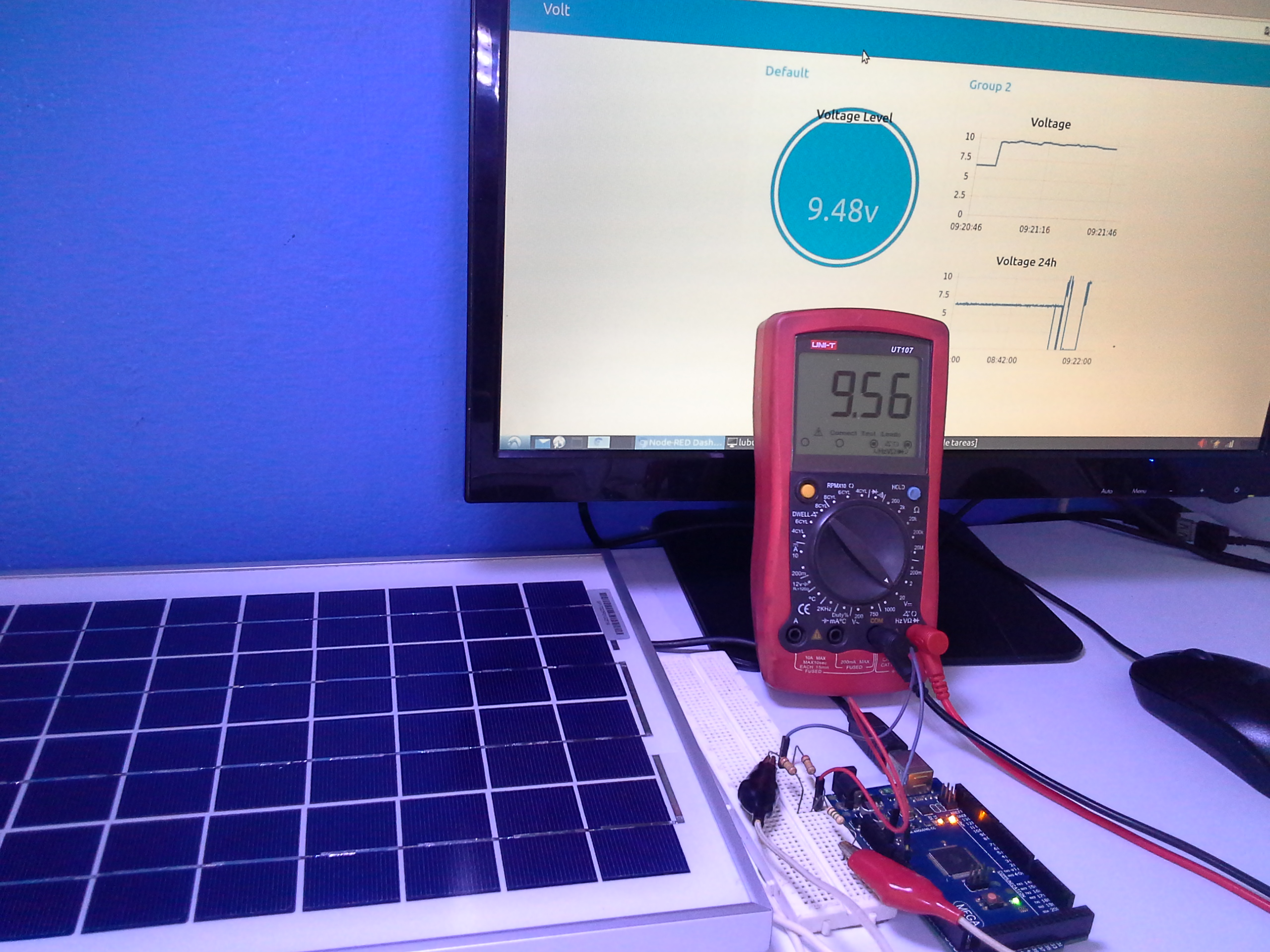
Caracteristics
This solar panel according to its characteristics guarantees 10 Watts.
Maximum Voltage: 18 V
Maximum Current: 0.5A = 500 mA
Cost in my country Colombia is 40,000 COP = 13.5 USD aprox, I consider it a very favorable price, although it also influences that these technologies are increasingly more accessible, that they think, comment.
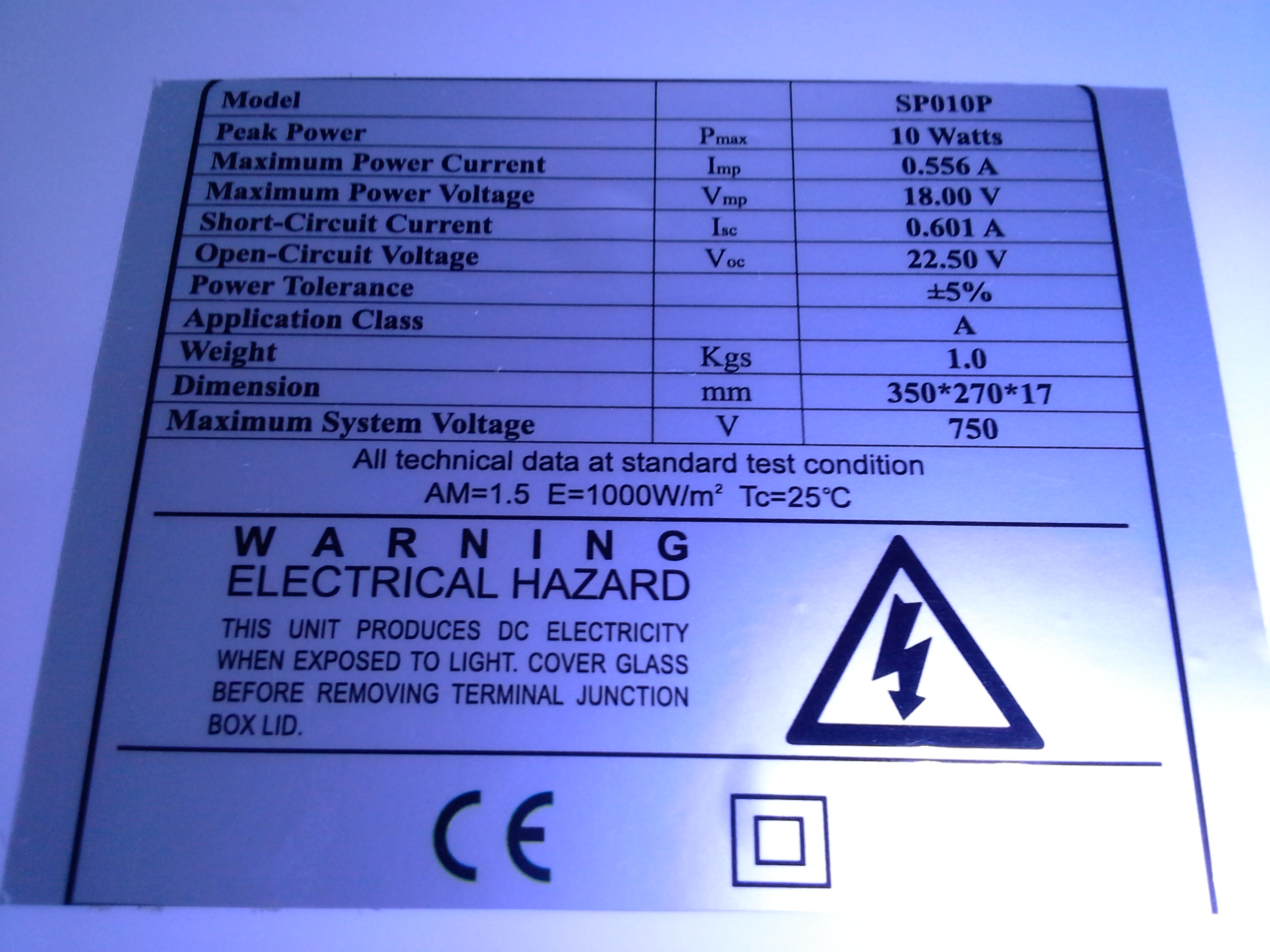
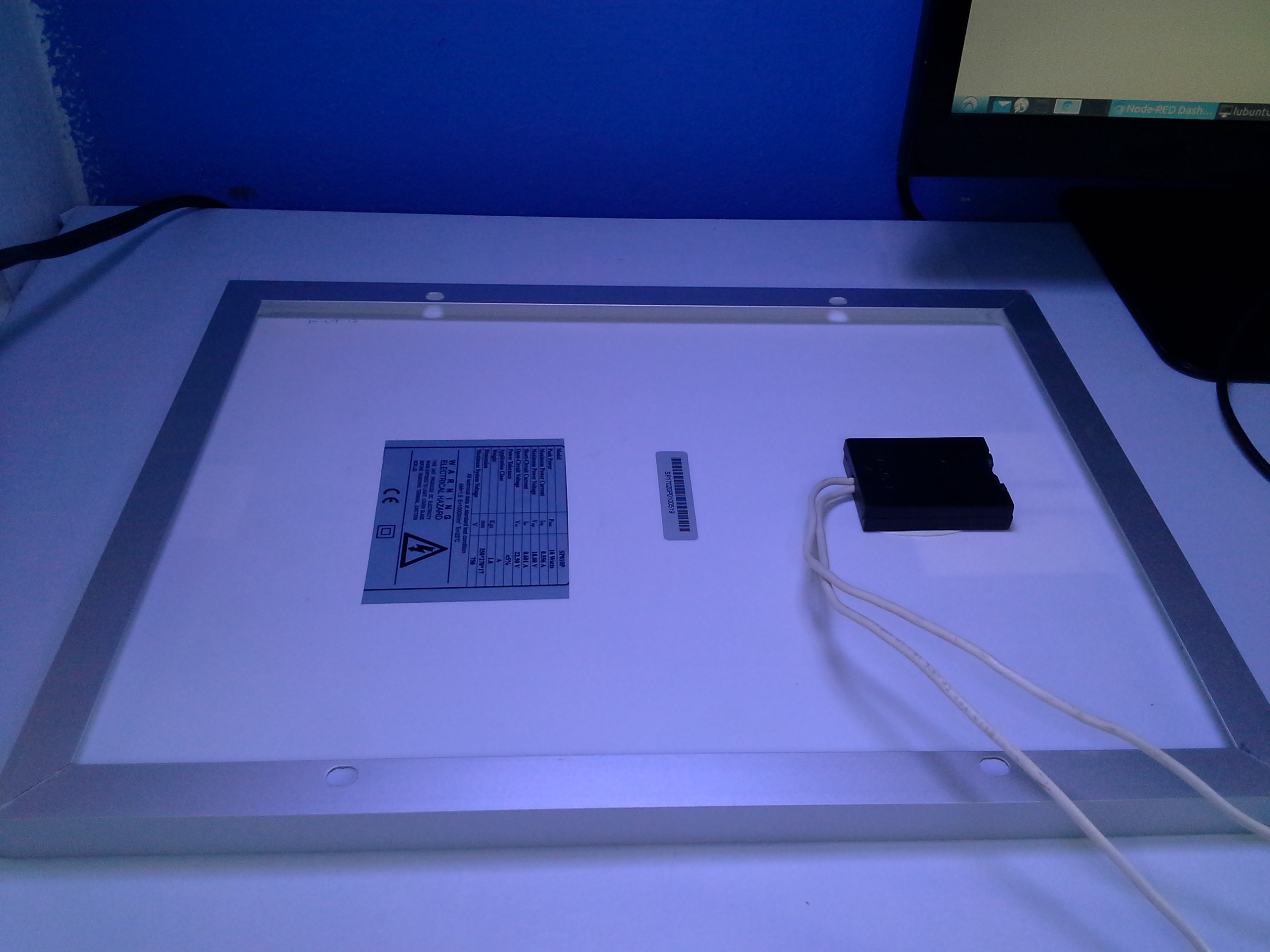
Very cheaps!!!
Rapid Test
We have performed a basic measurement test, and we have also added the Voltage measurement with an Arduino MEGA 2560 R3 board and visualization and data collection with Node-RED and Node-RED Dashboard.
Complete Tutorial: Measurement of DC Voltage with Arduino and visualization in Node-RED.
Video Review Panel Solar 10W con Arduino & Node-RED
View from Node-RED Dashboard
Measuring DC Voltage with Arduino and Node-RED
Node-RED Dashboard
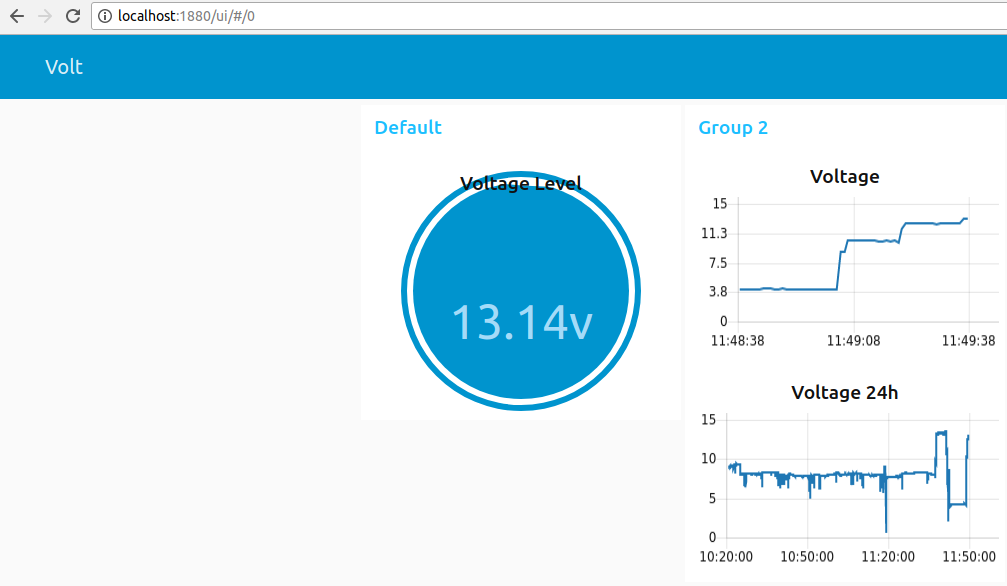
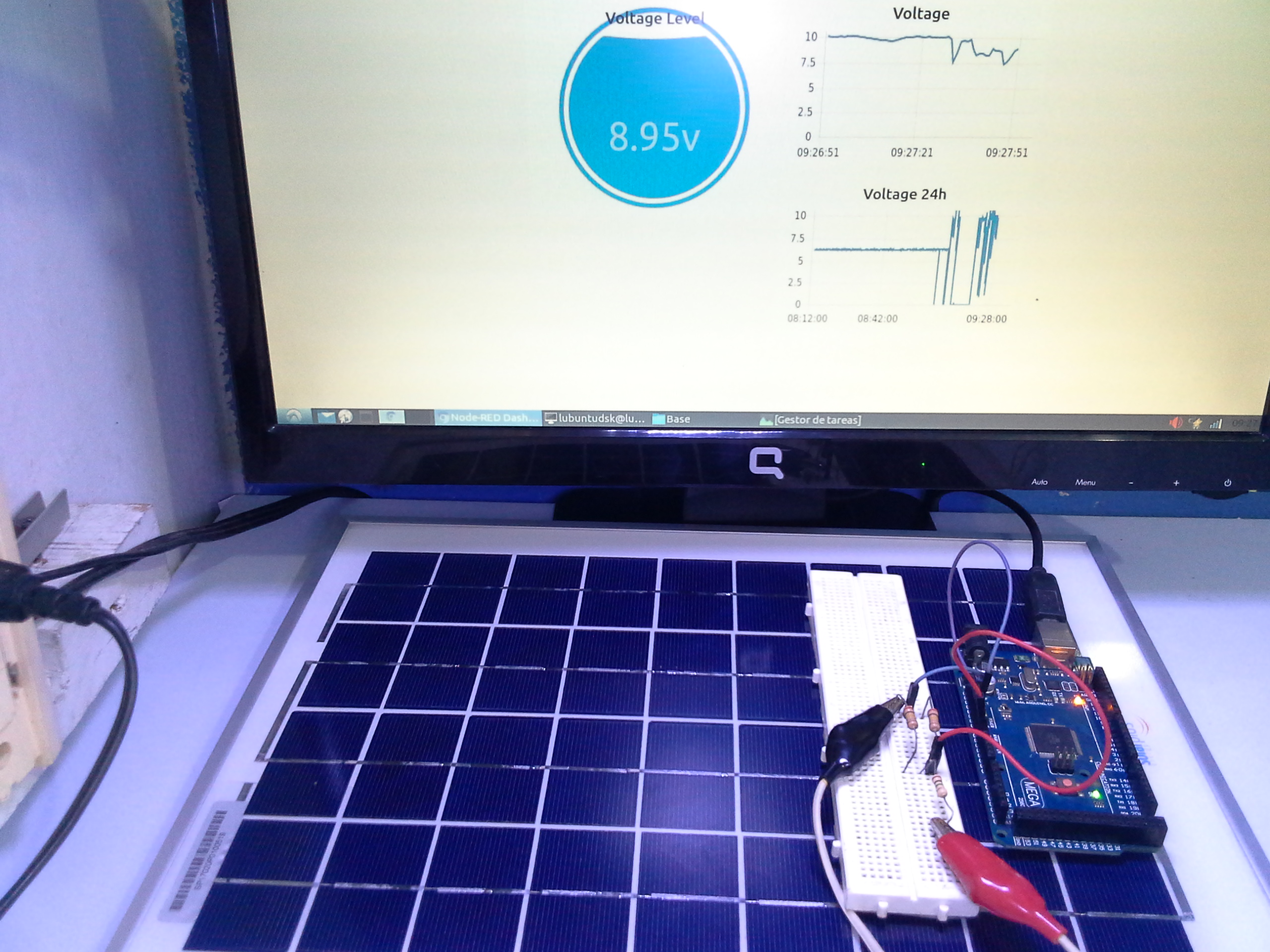
Outdoor Measurement
At sun of 10:30am the maximum value of the solar panel is 21v, although the characteristics indicate and guarantee 18v Max, without connected load it is normal that it generates 21v.
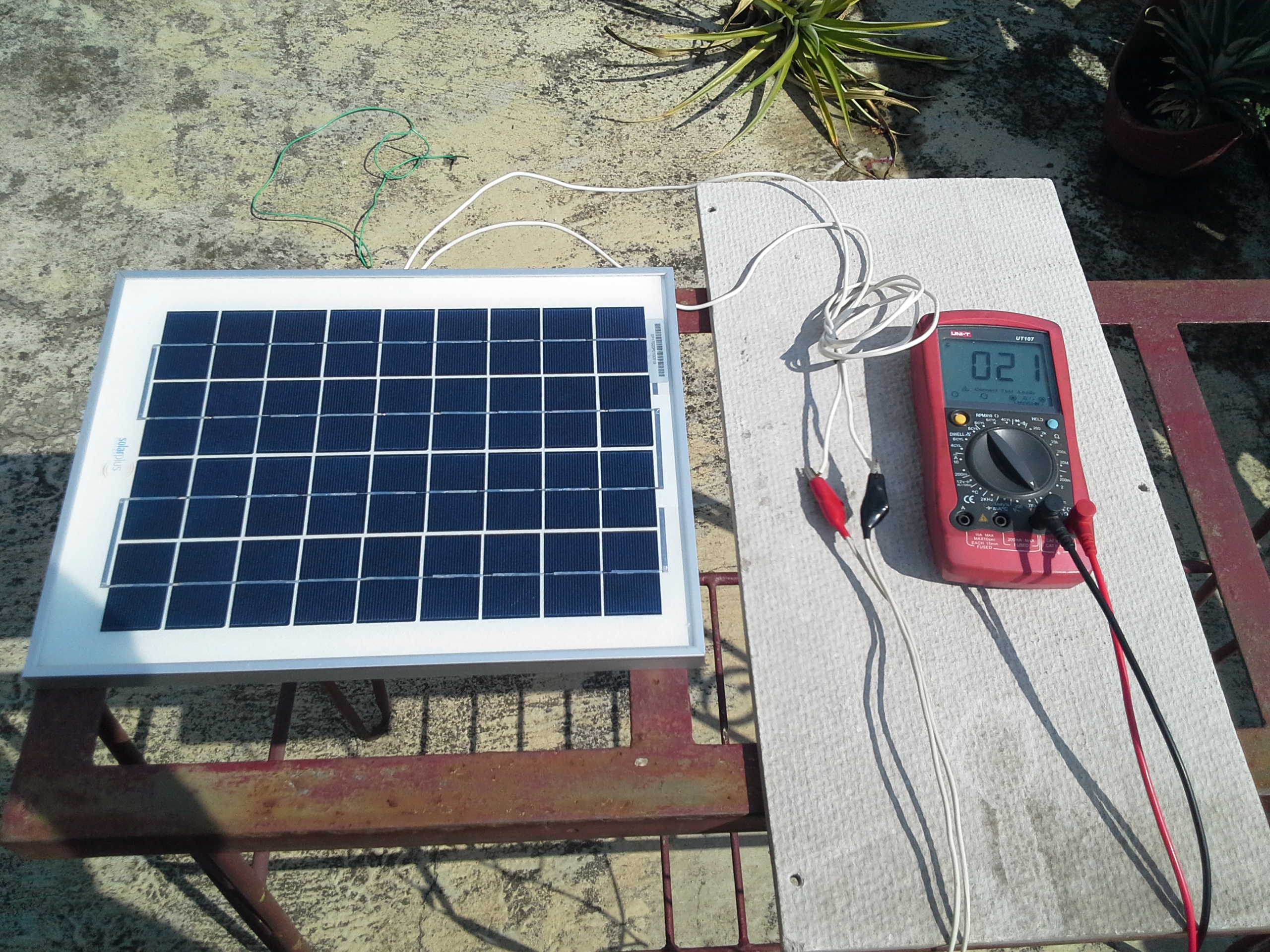
Node-Red Tutorials
Solar Panel Monitoring from Emoncms(Realtime)
Watch Dashboard Complete from Emoncms here:
Graph RealTime:
Comparative Voltage Graph Battery 6V VS Solar Panel
Dashboards Emoncms
Conclusions
I consider that the primordial thing of a solar panel is how much voltage it can generate in days of high cloudiness, that is to say there are some panels that only generate Voltage with the sun at all full.
In this case, this panel, regardless of the characteristics of the day, is efficient, depending on the configuration required.
For 13.5 dollars I consider a good investment, relation cost wattage.
Additionally, a measurement application with Arduino MEGA 2560 R3 has been used to make it more interesting and not only to use a tester.
References
- Complete Tutorial: Measurement of DC Voltage with Arduino and visualization in Node-RED.
- Introduction Platform Node-RED
- Solar Panel: Source wikipedia
